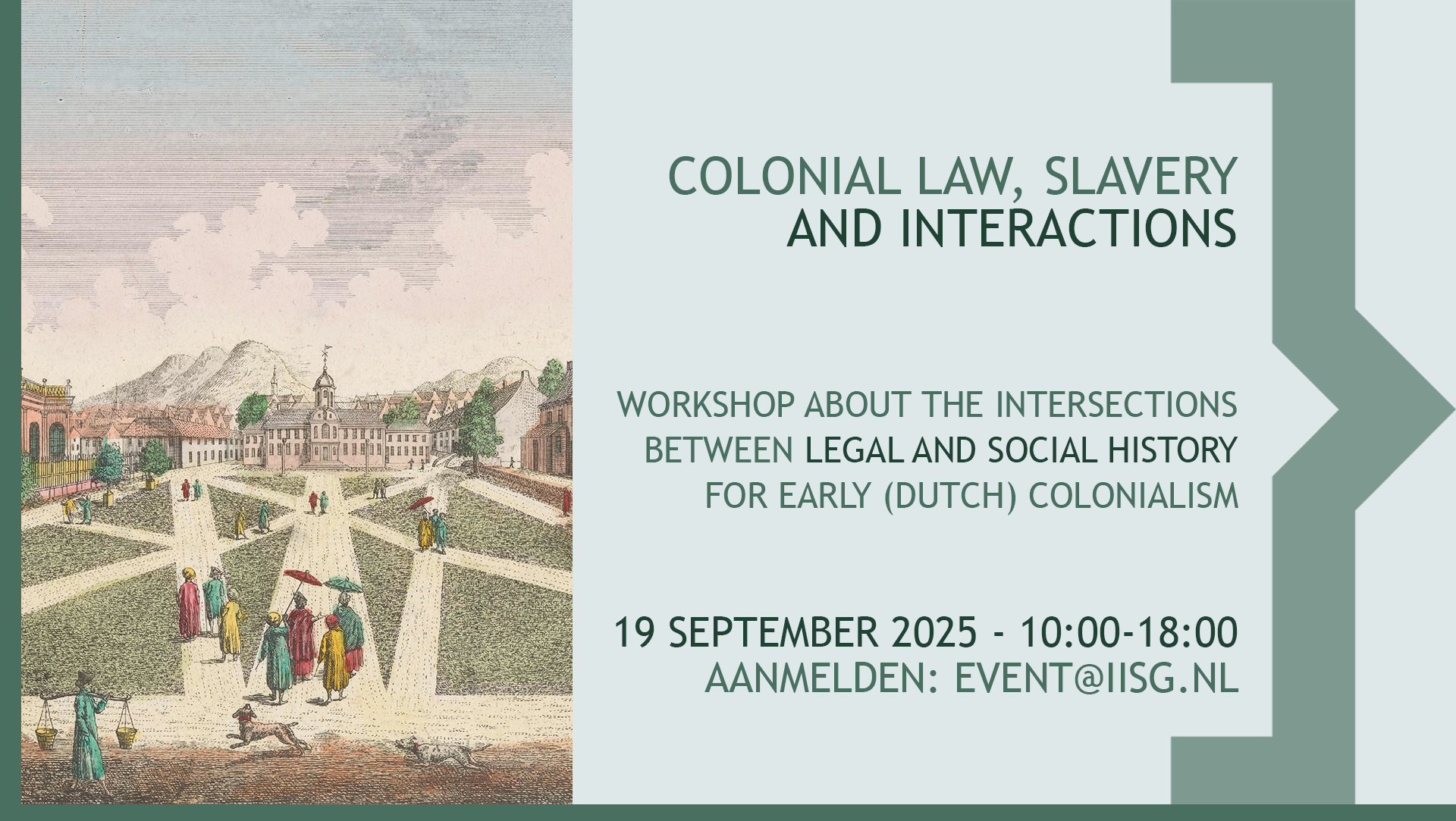Colonial law, slavery and interactions
This workshop explores the intersections between legal and social history for early (Dutch) colonialism.
The growing attention for the history of slavery and colonialism in recent years has foregrounded underexplored source material as well as research questions that are crucial to the writing of social, colonial and legal history. New research explores and expands the understanding of how slavery was shaped, how people responded, and how (colonial) law and legal practices were used in this. Legal sources in colonial archives in many ways provide a shared ground of interrogation for legal and social historians, who use court records, notarial archives, deeds of sale (or transport) and other records.
In spite of this shared and growing interest, however, the gap between the disciplines remains large limited. Whereas social historians often approach legal documents as a way to uncover everyday historical dynamics; legal historians are mostly interested in the development of ideas and institutions. All of them deal with questions, however, that require expertise from both disciplines, ranging from how everyday lived experiences under slavery were impacted by colonial and legal institutions, how exchanges between different parts of the (Dutch) colonial empire shaped political-legal frameworks and practices of exploitation, how Roman law was implemented in colonial contexts, or how non-European, local and colonial practices interacted.
This workshop aims to advance the dialogue with regard to practices of colonial law, slavery, inequality and racialization. It aims to provide a space for historical-legal discussions and meeting ground for historians using colonial legal sources and legal historians studying or interested in colonial law.
The idea is to bring together ‘case studies’ of social and legal history that engage with the interaction between slavery, colonial law and the role of legal (archival) records. And to facilitate dialogue and discussion in a collegial and informal setting.
Program
10.00 - 10.15 Opening and welcome by Matthias van Rossum
10.15 - 11.30 Session 1: Enslavement, slavery and colonial rule
- Filipa Ribeiro da Silva, Slavery, law and empire
- Jacob Giltaij, The Roman law of slavery as a theoretical model for colonial rule
- Timo McGregor, Identifying Regional Regimes of Early Modern Slavery
11.30 - 12.00 Presentation Resilient Diversity Dutch Colonial Court Records Database (http://voices.iisg.nl/courtrecords) by Elisabeth Heijmans, Sophie Rose and Pascal Konings
12.00 - 13.00 Lunch
13.00 - 14.15 Session 2: Litigation, slavery and colonialism
- Wouter Raaijmakers, The Folly of Legal Certainty at the VOC Courts: Jurisprudence as a Process of Dutch Empire-Building
- Ramona Negron, “She ought not to be treated as a slave”: The case of Johanna Dost in eighteenth-century Demerara
Mary-Anne Nicolaas, Pro deo legal aid: the case of Jaberi
14.15 - 14.30 Short break
14.30 - 15.45 Session 3: Slavery, law and the metropole
- Camille LeBrettevillois, Marriage & enslavement: two compatible concepts? The case of Lisbon in the 17th century
- Mark Ponte, Notarial manumission in Amsterdam, 1642-1780
- Hylkje de Jong, Colonialism and legal practice: The benefit of digitalisation and network analysis for the archives of the courts in Dutch Republic
15.45 - 16.45 Closing reflections by Elisabeth Heijmans, Marion Pluskota and Sanne Muurling and plenary discussion
17.00 - 18.00 Drinks
Practical
Date 19 September 2025
Time 10:00-17:00
Location IISG, Cruquiusweg 31, Amsterdam
Entrance Free, but please send an email to event@iisg.nl if you want to join. You could register until 15 September.
Joine online https://knaw-nl.zoom.us/j/83398567689?pwd=OtbzHrzHlj3sPF5oRlfz5L6HKhFvR7.1 Meeting ID 833 9856 7689 Passcode 201038



